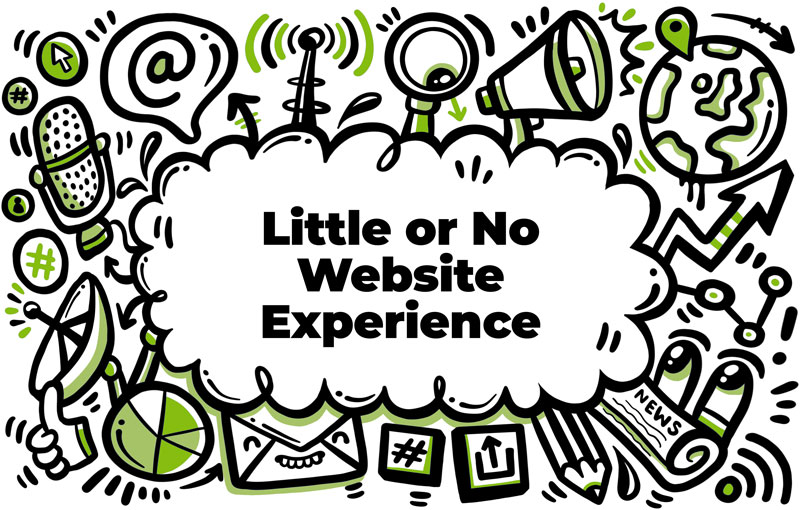A Beginner’s Guide to Website Design for Small Business Owners
In today’s digital age, having a well-designed website is crucial for small business owners looking to establish a strong online presence. A user-friendly and visually appealing website can help you attract more customers, generate leads, and ultimately, increase revenue. In this beginner’s guide, we’ll walk you through the essentials of website design for small businesses and share some valuable tips to get you started.
Understanding the Importance of a Good Website Design
Your website is often the first point of contact between your business and potential customers. An engaging and easy-to-navigate website leaves a lasting impression and encourages visitors to explore further. A poorly designed website, on the other hand, can turn away potential customers and negatively impact your brand image.
Determine Your Website’s Purpose and Goals
Before diving into the design process, defining your website’s purpose and goals is essential. Are you looking to generate leads, sell products, or provide information about your services? Understanding your objectives will help you create a more focused and effective website design.
Prioritise User Experience (UX)
A well-designed website prioritises the user experience (UX) – a visitor’s overall experience while interacting with your site. A good UX ensures that your website is easy to navigate, loads quickly, and provides valuable content. To enhance the user experience, consider the following:
- Easy Navigation
Create a clear and logical navigation structure with a consistent layout. Ensure that your menu is easily accessible and includes links to the most important pages of your site.
- Responsive Design
With the increasing use of mobile devices for browsing, making your website responsive is crucial. A responsive design adapts to different screen sizes, ensuring a seamless experience for users on desktops, tablets, and smartphones.
- Optimise Page Load Speed
Slow-loading websites can frustrate users and lead to high bounce rates. Optimise your website’s load speed by compressing images, minifying CSS and JavaScript files, and using a reliable hosting service.
Choose the Right Platform and Template
As a small business owner, you might not have the resources to hire a professional web designer. Fortunately, many website builders and content management systems (CMS) are available that make it easy to create a website without coding knowledge. Some popular options include WordPress, Wix, and Squarespace. Research the various platforms and choose one that fits your needs and budget.
Once you’ve selected a platform, explore the available templates and choose a design that aligns with your brand identity and goals. Remember that you can always customise the template to suit your needs better.
Create Engaging and Relevant Content
Content is king, and your website should provide valuable information that meets the needs of your target audience. Ensure your content is well-written, easy to understand, and error-free. Additionally, consider incorporating multimedia elements like images, videos, and infographics to make your content more engaging.
Implement Basic SEO Practices
Search engine optimisation (SEO) is essential for making your website more visible to your target audience. While SEO can be complex, there are a few basic practices you can implement to improve your website’s search rankings:
- Use Relevant Keywords
Research and incorporate relevant keywords, titles, and meta descriptions into your content. This will help search engines understand the context of your website and rank it higher in search results for those keywords.
- Create Quality Backlinks
Backlinks, or links from other websites pointing to your site, are an important ranking factor for search engines. Reach out to relevant websites within your niche and request them to link to your content or collaborate on projects to generate high-quality backlinks.
- Optimise Your URLs
Create descriptive and easy-to-read URLs for your website’s pages. Include relevant keywords and avoid using special characters or numbers that may make it difficult for search engines to understand the page’s content.
- Utilise Meta Descriptions
A meta description summarises a page’s content that appears in search results. Craft compelling and informative meta descriptions that include your target keywords to improve click-through rates and search engine rankings.
Test and Monitor Your Website
Once your website is live, it’s important to regularly test and monitor its performance. Use tools like Google Analytics to track user behaviour, engagement, and conversions. Identify areas of improvement and make necessary adjustments to enhance the user experience and achieve your goals.
Additionally, perform routine usability tests to ensure your website remains user-friendly and accessible across different devices and browsers.
In Conclusion, creating an engaging and effective website design for your small business doesn’t have to be daunting. By understanding your goals, prioritising user experience, and implementing basic SEO practices, you can build a website that is a powerful marketing tool for your business. Remember to keep your website updated with fresh content and continuously monitor its performance to ensure its ongoing success.



